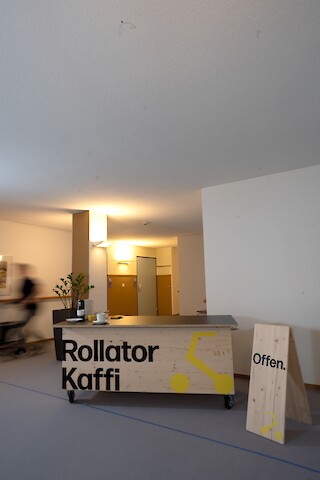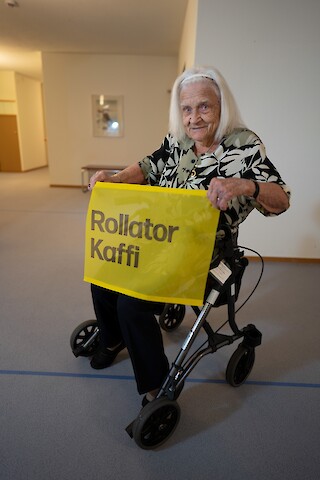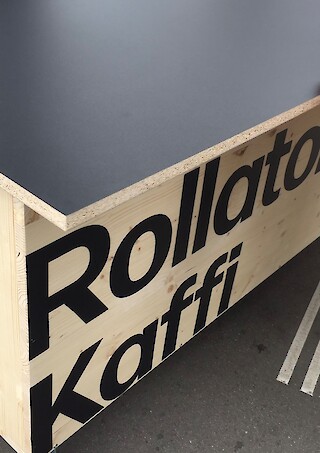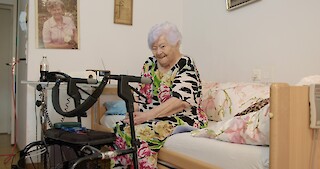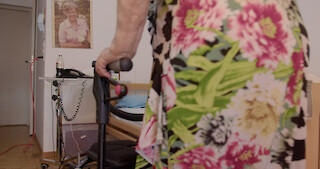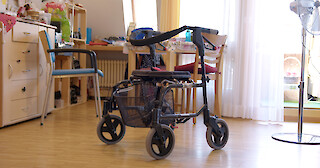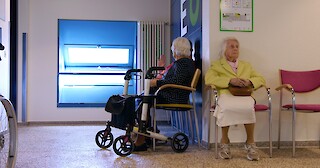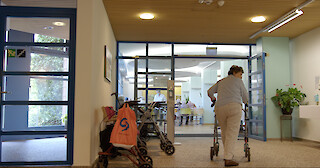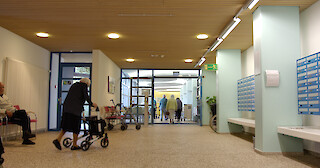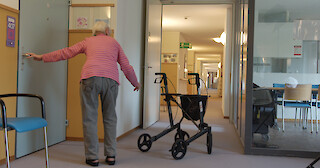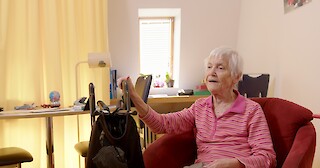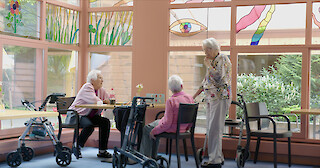Mehr Raum und Respekt für die Geh-Hilfe
somnus_tanita@hotmail.com
[DE]
Wir allen kennen den Rollator und keine:r von uns hofft darauf, ihn bald nutzen zu dürfen. Als Zeichen des Mobilitäts- und Autonomieverlusts im Alter, ist der Umgang mit ihm geprägt von (Berührungs-) Ängsten. Rollator-Kaffi will dies ändern und schafft Raum im Alltag, um die Objektbeziehung zu Rollatoren zu fördern und neue Möglichkeiten der Partizipation und Aneignung zu schaffen. Das Projekt reagiert damit auf zunehmende Individualisierungsprozesse sowie auf eine sich wandelnde und wachsende Altersgesellschaft, in welcher Care-Objekte wie Rollatoren und auch andere Hilfsmittel an Bedeutung gewinnen werden.
Typischerweise durchlaufen Objektbeziehungen zwischen Rollatoren und denjenigen, die sie nutzen, verschiedene Phasen, in welchen der Mensch und Rollator zu einem Hybrid fusionieren. Das Rollator-Kaffi, welches als mobiler Treffpunkt in geriatrischen Pflegeinstitutionen fungiert, möchte der Komplexität dieses Zusammenspiels sowie dem Mangel an Unterstützungsleistungen für das Durch- und Erleben dieser Phasen positiv entgegenwirken. Mittels Events und Gesprächen regt das integrierte „Kaffi“ den ungezwungenen Austausch und die interaktive Begegnung mit dem Rollator an.
Es gilt, die Personen bei der individuellen Inbesitznahme ihres Rollators zu unterstützen und die damit verbundenen Stigmata abzubauen, nicht nur bei denen, die sie brauchen und nutzen, sondern auch bei Angehörigen und Pflegepersonal.
[EN]
We all know the walker and none of us are keen to use it any time soon. As a sign of loss of mobility and autonomy in old age, contact with the device is characterised by fears and inhibitions. Rollator-Kaffi wants to change this. It creates space in everyday life to support the object relationship between walkers and their users, and provides new opportunities for participation and adoption. The project thus responds to increasing individualisation processes as well as to a changing society with an increasingly older population, in which care objects such as walkers, as well as other aids, will gain more importance.
Typically, object relationships between walkers and those who use them go through different phases in which person and walker merge into a hybrid. The Rollator-Kaffi, which functions as a mobile meeting point in geriatric care institutions, wants to counteract the complexity of this interaction in a positive way, while also addressing the lack of support services when going through and experiencing these phases. By means of events and discussions the integrated ‘Kaffi’ (café) encourages informal exchanges and interactive encounters with the walker.
The aim is to support people in the process of taking individual ownership of their walker and to soften the stigmas associated with it, not only among those who need and use it, but also among relatives and caregivers.
